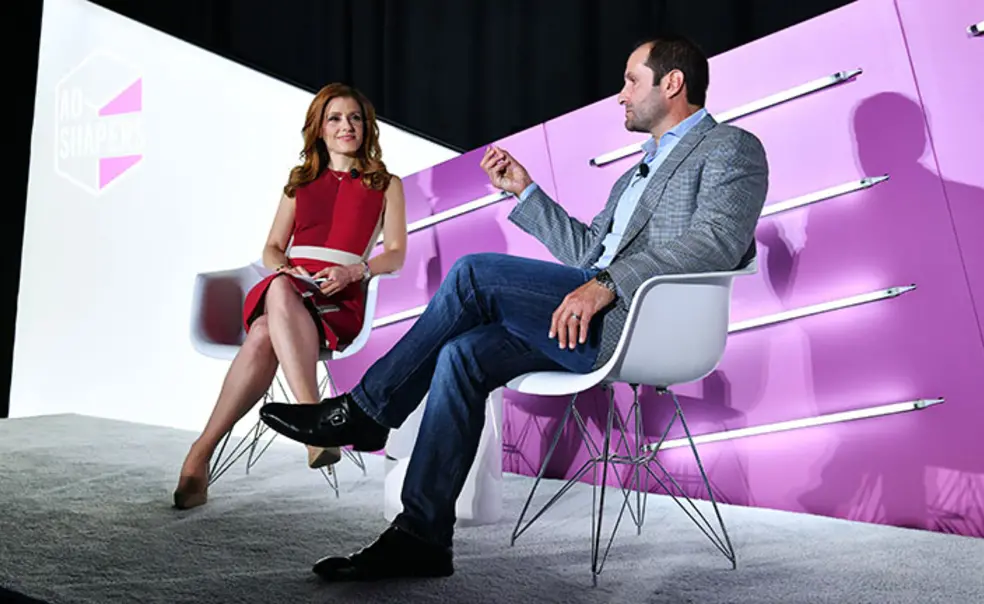Julia Boorstin Samuelson ’00 Reports on Tech’s Role Across Industries
Thirteen years ago, after she joined CNBC but before the social-media industry existed, Julia Boorstin Samuelson ’00 told her boss she wanted to report on a small company called Facebook. He wasn’t so sure. “Why do we care about this tiny, private company?” he asked.
Facebook soon became a topic to define Boorstin’s beat at CNBC. As the senior media and technology reporter, she’s followed Mark Zuckerberg from Facebook’s first days through the Cambridge Analytica scandal — a years-long assignment set to a backdrop of growing “tech-lash.” “It’s been useful to have covered the company since its early days," says Boorstin. “I really understand the company’s trajectory and how quickly [it] has grown.” But even with this widespread concern about the impact of technology, she says, it’s worth noting how powerful companies like Facebook remain. “Consumers have not limited their use of social platforms, despite concerns about data privacy, election manipulation, and the like,” she says.
A history major and Daily Princetonian writer at Princeton, Boorstin took a crash course in economics and business from an editor at Fortune magazine. She appeared on CNN in May 2001 to explain an article, and returned to report daily business stories for five more years. During her final interview for a job at CNBC, Boorstin’s now-boss asked why Boorstin never felt nervous on live TV. Was she an actress? A dancer, she replied. “Well if you can be on stage in front of a thousand people in a leotard, you can be on TV in a blazer,” he told her.
Boorstin says TV news felt like a “whole different world.” She learned to read scripts, follow a teleprompter, and write about big stories with few words. “It reminds me of the process of editing a piece with John McPhee [’53], who would make you really consider why you chose every single word,” she says. “If I could only use one word here, which would be the most valuable?”
She calls this the “economy of words.” It guides her through writing stories about media and internet companies, from Disney and Netflix to Facebook and Twitter. Back when she began covering Facebook, Boorstin launched CNBC’s “Disruptor 50” to spotlight the next generation of startups that “are either going to become the next public giants or are disrupting these public giants, forcing them to change the way they’re doing business.” Last year, an agriculture startup took first place. Whether it’s in education, transportation, housing or biotech, she says that we’re seeing technology’s impact in every industry.
But the world she reports on is incredibly male dominated, Boorstin says, “and anyone who’s making progress to change that, I think, needs to be highlighted.” “Closing the Gap,” a CNBC franchise she helped create, spotlights individuals in companies working to close the gender and diversity gap. Take Paypal, a company claiming zero pay gap. “What is it that you’ve learned from this experience that other companies could potentially emulate?” Boorstin asked Paypal’s CEO in 2019, whose evaluation process to review pay and promotions was introduced to eliminate bias.
“I think people sometimes assume so much progress has been made, and it’s really important to highlight to CNBC’s educated, affluent audience that these gaps still exist, and they’re huge,” she says, adding that reporting shows diverse businesses perform better. “It’s been fascinating to report on how companies are taking steps to address unconscious bias and pay disparities, and it’s not that hard to do so — and making these changes pays huge dividends. I hope that telling these stories inspires other companies to look at how more diversity could really boost their bottoms lines.”












No responses yet